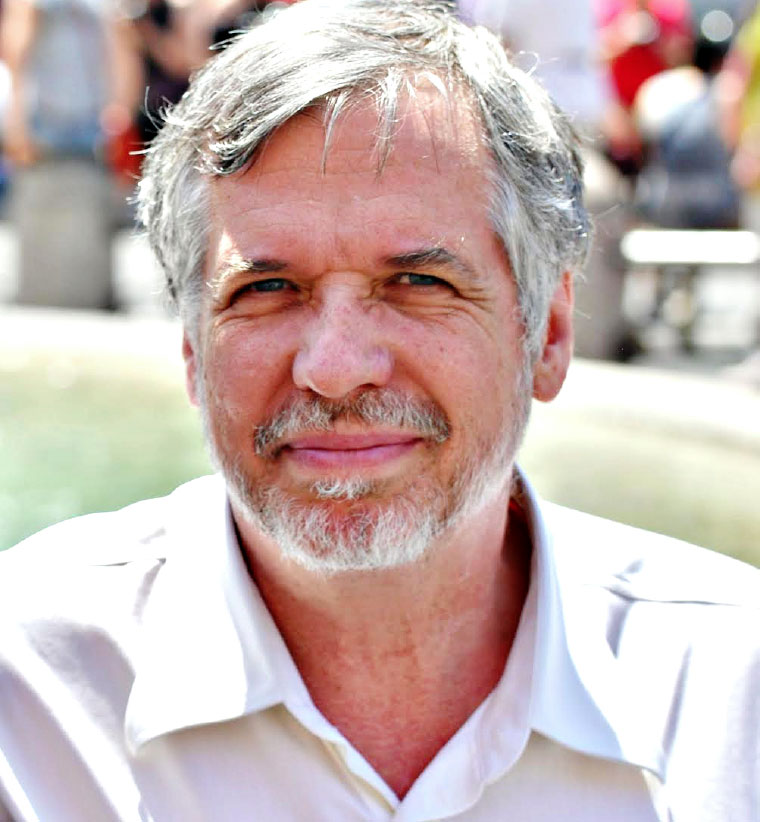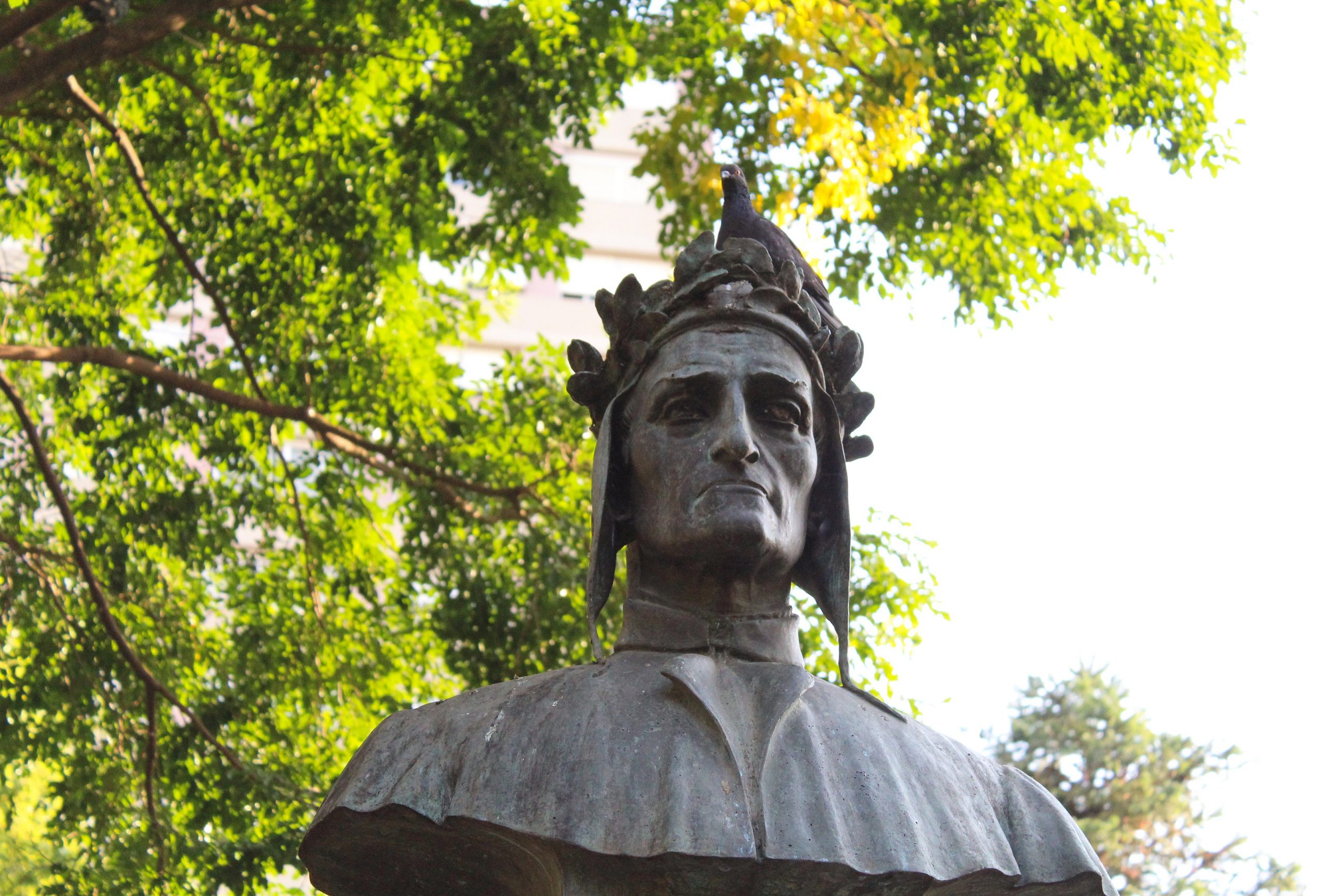To an Italian, Dante is croce e delizia, pleasure and pain: forcefully immersed in the study of his heavenly works during the rebellious years of adolescence, we usually begin our relationship with the Dantean world with the wrong foot.
But then comes adulthood and, with it, this strange necessity to pick those old high school volumes and read, to discover the true beauty and complex creativity of Dante’s works.
Dante does not simply and only belong to Italy, though, he is a world patrimony: witness to this, also the presence, in the US, of one of the world best known Dantean institutions, the Dante Society of America. Created by poets, with the aim of kindling the flame of Dante’s work among people of all education and social extraction, the Society is today headed by respected Italianist and Berkeley professor Albert Russell Ascoli, with whom I recently have had the honor – and pleasure – to have a chat.

What is your cultural background?
I am the son of an Italian-Jewish father who emigrated at the age of 16 after the imposition of anti-semitic racial laws by Mussolini in 1938 and an American mother whose family had lived in and around New England since the 17th century. I grew up in Champaign-Urbana, IL, where my father was a professor of high energy Physics and my mother was a professional social worker. Though I visited Italy briefly at the age of 15 months and then again at 15 years of age, I did not begin learning Italian in earnest until my senior year of High School.
In college, first at Grinnell and then at the University of Illinois I was an English major, with a minor in Italian. After graduation I spent a year in Italy on a fellowship, and it was then that I really learned to speak and read the language fluently. I began graduate school at Cornell University in English but was soon converted to the Italian Ph.D. through my studies of Boccaccio and Dante with Professor Giuseppe Mazzotta (who now teaches at Yale). Since 1996 I have taught in the Italian Studies Department at UC Berkeley where we offer a range of graduate, undergraduate and general education courses in Italian and in English.
How did your passion for Dante and his work develop?
My passion for Dante was, strangely, first awoken by readings of T.S. Eliot, who considered Dante, with Shakespeare, one of the two greatest authors in the Western tradition. It was fostered in my studies with Mazzotta. Yet my doctoral dissertation (1983) and first book (1987; Princeton University Press) were on a Renaissance author, Ariosto, whose chivalric romance, Orlando furioso, is also one of the great masterpieces of the Italian canon. It was only later that I began to work on Dante and in particular on his concepts of what poetry and poetic authorship are.
These studies culminated, after 20 years of research and writing, in the publication of my book, Dante and the Making of a Modern Author in 2008 with Cambridge University Press. It was soon thereafter that I was elected to the Council of the Dante Society of America (2009), then becoming Vice President (2011-2014) and afterwards President (2014 on).
Let’s talk about it: the Dante Society of America has a fascinating history, would you tell us something more?
The Dante Society of America was first founded in 1881 by Henry Wadsworth Longfellow, who had recently completed the first American translation of the Divine Comedy. Longfellow and his circle, known as the Dante Club (fictionalized in Matthew Perry’s novel of that title) were based at Harvard University. The Society aimed to foster the “study and appreciation” of the Commedia (Dante’s original Italian title), and for a long time its membership was largely composed of scholars and amateurs.
In the 20th century the Society took on an increasingly academic orientation, centered on the publication of its journal Dante Studies, and drifted away from its original mission of promoting the study of Dante in a larger public context.
What about the society today, in the 21st century?
With the presidencies first of Nancy Vickers (former president of Bryn Mawr college) and then of myself, the Society entered into a period of reform whose twin goals were to put the Society on a firm financial basis and to renew and reassert its mission, which is now clearly defined as encouraging “the study and appreciation of the time, life, works, and cultural legacy of Dante Alighieri”. The period of renewal saw the creation of a new website with vastly expanded resources to assist members of all kinds in their reading and appreciation of Dante’s many works (not the Commedia alone).
The website can be accessed at https://www.dantesociety.org/, where interested folks can browse to their hearts’ content but also may become members and donor-supporters of the Society (which is still in ongoing need of financial assistance). While we continue to embrace the scholarly side of our mission, we have made a concerted and continuing effort to promote the interest of younger students (middle school and high school) and of the general public in our poet, who continues to exert a fascination in many ways, from Sandow Birk’s updated series of visual images from the Comedy to Dan Brown’s popular novel Inferno.
In a time when the traditional humanities are increasingly under threat, and in particular the study of Italy’s great literary and artistic tradition has also suffered setbacks in the schools and the university, we believe that this is the right and necessary time to do all we can to make sure that the great poet and his works are not forgotten.
That is, indeed, a beautiful goal: I read you have already started rising awareness about Dante and his art at secondary school level…
A first step, but only a first step, in this direction is the creation of the annual Robert M. Durling prize (named for the great scholar and translator of the Commedia) of $1000 to a secondary school educator who has introduced Dante into her or his courses in an especially creative way (a description of how to nominate a teacher for this prize can be found on the website). In future we will take more initiatives, including: publishing exemplary essays on Dante by High School students; creating a list of Dante scholars throughout the country willing to lecture and lead discussions on the poet and his works, whether to students or to interested members of the general public. I thank you for this opportunity to share this news about our “Dante in the Schools” initiative, and I hope your readers will not hesitate to contact me with any questions they may have about it (ascoli@berkeley.edu).






























